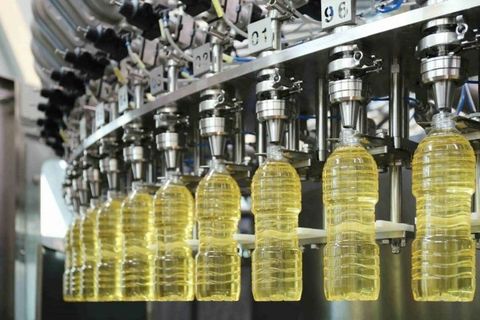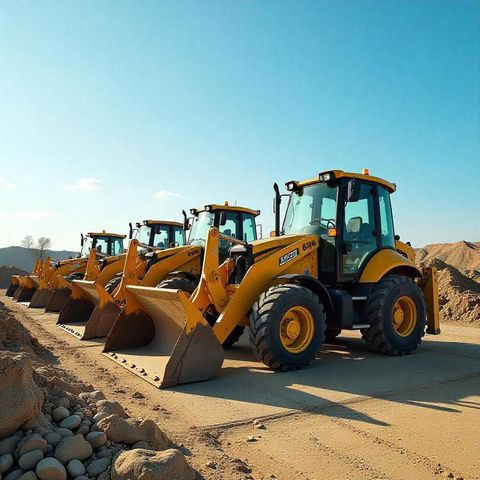Bag Filter Manufacturer Explained: An Informative Overview with Tips, Insights, and Expert Advice
Bag filters play an essential role in industrial filtration systems used across manufacturing, power generation, mining, cement production, food processing, and chemical operations. A bag filter is a specialized device designed to capture fine particulate matter from air or gas streams using fabric filter bags housed inside a filtration unit.
Manufacturers of bag filters design, engineer, and produce these systems to help industries manage airborne particles, maintain workplace safety, and achieve consistent filtration performance.
The need for bag filters exists because industrial processes release dust, fumes, and fine particles that can affect equipment reliability and environmental quality. As industries increase production capacity and adopt advanced technologies, the demand for efficient filtration units rises. Bag filter manufacturers contribute by developing high-performance filtration technology, supporting air quality improvement, and enabling industries to follow emission control standards.
Importance
Bag filters are significant today because industries face stronger expectations for environmental compliance, particulate emission reduction, and sustainable operations. They help protect workers, communities, and equipment from the negative effects of dust and fine particles.
This topic matters because:
-
Industries must meet strict air pollution control regulations set by environmental agencies.
-
Manufacturers rely on filtration systems to maintain machinery longevity and reduce downtime.
-
Communities expect cleaner surroundings and better air quality as industrial areas grow.
-
Global focus on sustainable manufacturing increases the demand for efficient filtration solutions.
Bag filter systems contribute to solving several problems:
-
Reducing particulate emissions in high-dust environments
-
Supporting industries in meeting particulate emission standards
-
Preventing dust accumulation that may lead to operational issues
-
Maintaining indoor air quality within industrial plants
-
Enhancing workplace safety by minimizing airborne hazards
Industries most affected include:
-
Cement and construction materials
-
Steel and metal processing
-
Pharmaceuticals
-
Chemicals and petrochemicals
-
Agriculture and food processing
-
Mining and quarrying
-
Textile manufacturing
Bag filter manufacturers help these sectors implement reliable systems designed for long-term filtration performance.
Recent Updates
The past year has seen several developments in industrial dust management and filtration technology. These updates include new materials, automation features, and environmental requirements. A few notable trends from 2024–2025:
• Increasing adoption of advanced filter media
New synthetic fibers, membrane-coated fabrics, and high-temperature-resistant materials have gained popularity. These materials enhance filtration efficiency and extend bag life.
• Smart monitoring and digital tracking
From early 2024 onward, many manufacturers began incorporating digital sensors and condition monitoring tools. These systems track pressure drop, airflow patterns, and bag health to enable predictive maintenance.
• Stricter particulate emission thresholds
Several countries updated emission norms in 2024, requiring industries to maintain lower particulate output levels. This increased demand for more efficient bag filter units.
• Focus on sustainable manufacturing
Between mid-2024 and early 2025, environmental programs encouraged industries to reduce energy use. As a result, interest has grown in low-energy filtration systems.
• Rise in modular filtration designs
Manufacturers introduced modular bag filter units that can be expanded easily for growing industrial operations.
These changes reflect the broader shift toward advanced filtration engineering, clean production, and environmental responsibility.
Laws and Policies
Bag filters are directly influenced by emission control regulations, environmental standards, and workplace safety rules. These policies vary by country but generally address particulate emissions, industrial air quality, and environmental clearance requirements.
Some commonly applicable regulatory areas:
• National Ambient Air Quality Standards (NAAQS)
Industries must keep emissions within defined limits, making bag filters vital for compliance.
• Environmental protection acts
Most countries enforce rules requiring pollution control equipment for dust-generating industries.
• Occupational safety standards
Guidelines ensure that workers are protected from inhalable dust and hazardous airborne particles.
• Industry-specific emission norms
Cement, power plants, food processing, and chemical industries often follow additional sector regulations.
• Environmental clearance requirements
Before expanding operations, industries must show they have suitable air filtration and dust-management systems in place.
• Continuous Emission Monitoring System (CEMS) integration
In many regions, laws require real-time monitoring of industrial emissions. Bag filters work alongside these monitoring systems to help industries remain compliant.
These policies ensure that air pollution control systems remain essential across industrial sectors.
Tools and Resources
Industries and professionals rely on various tools, guidelines, and online platforms to understand and manage bag filter systems. These resources support monitoring, planning, and improving filtration performance.
Useful Tools and Platforms
-
Air Quality Monitoring Dashboards
Used to track particulate levels in industrial zones. -
Pressure Drop Calculators
Help estimate filter loading and airflow resistance. -
Emission Limit Databases
Provide reference values for allowable particulate concentration. -
Industrial Filtration Performance Checklists
Assist in evaluating filter condition, cleaning cycles, and operational parameters. -
Environmental Compliance Platforms
Offer updates on regulatory changes affecting industrial emissions. -
Filter Bag Material Selector Tools
Help choose the correct fabric for specific operating temperatures and particle types. -
Equipment Maintenance Log Templates
Allow industries to track inspection dates, bag replacement intervals, and system behavior.
Below is a sample table showing common filter media types and their typical industrial uses:
| Filter Media Type | Temperature Range | Typical Applications |
|---|---|---|
| Polyester (PET) | Moderate | General manufacturing, woodworking |
| Polypropylene | Low to moderate | Food processing, chemical operations |
| Aramid (Nomex) | High | Cement, asphalt, power generation |
| PPS (Polyphenylene Sulfide) | High | Coal boilers, chemical plants |
| PTFE Membrane | Very high | Pharmaceuticals, fine dust environments |
FAQs
1. What is the main function of a bag filter?
A bag filter removes fine particles from air or gas by passing the contaminated stream through fabric filter bags. It supports cleaner air, safer work environments, and compliance with emission standards.
2. Which industries commonly use bag filters?
Sectors such as cement, steel, mining, power generation, chemicals, food processing, and textiles frequently use bag filters for dust control and air quality improvement.
3. How often should filter bags be inspected?
Inspection frequency depends on operating conditions, but many industrial systems evaluate filter bags monthly or quarterly using standard maintenance routines.
4. What affects the efficiency of a bag filter?
Factors include filter media type, airflow rate, dust characteristics, cleaning mechanism, and proper system design.
5. Are bag filters relevant for environmental compliance?
Yes. They are widely used to meet air pollution control rules, particulate emission standards, and mandatory environmental guidelines across industries.
Conclusion
Bag filter manufacturers play an important role in helping industries maintain air quality, environmental compliance, and reliable filtration performance. As industrial activity expands and environmental expectations increase, efficient dust-control systems become even more essential.
Recent advancements in materials, digital monitoring, and modular designs show how filtration technology continues to evolve. Regulations across various sectors further highlight the importance of maintaining proper emission control systems.
Bag filters remain a critical part of industrial operations, supporting safe workplaces, cleaner environments, and responsible production practices.




